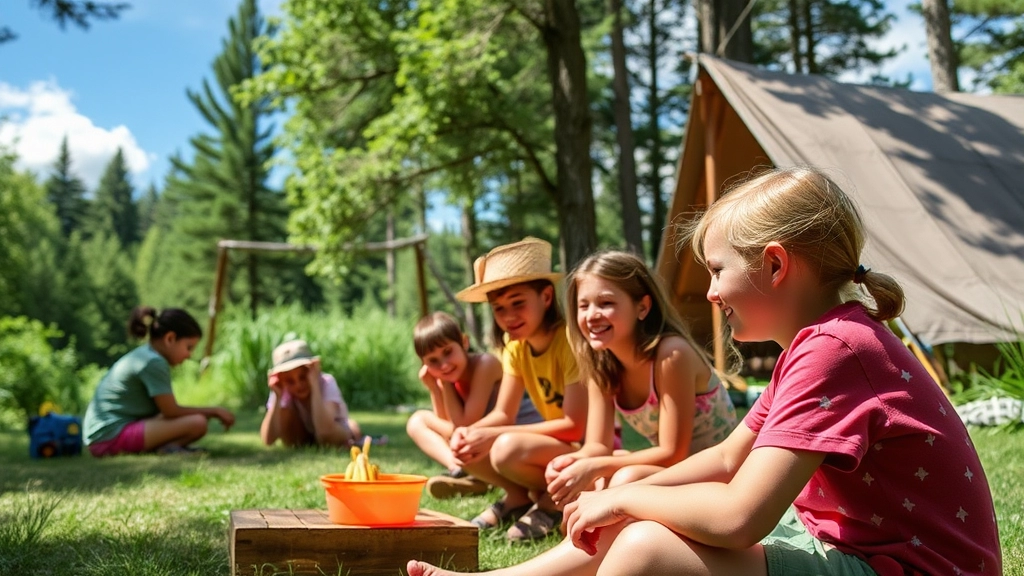Exploring Summer Camp Culture
Ever wondered what makes summer camps more than just a seasonal escape for kids? Dive into the vibrant world of summer camp culture and discover its rich origins, diverse types, and the timeless traditions that make it a cornerstone of youth development. From fostering independence and teamwork to embracing modern adaptations and inclusivity, summer camps have evolved to meet the ever-changing needs of today’s youth.
The Evolution of Summer Camps
In this article, we explore the fascinating evolution of summer camps, the essential role of counselors and leadership, and the significant cultural impact on young minds. We’ll also delve into regional differences, parental perspectives, and community-building aspects, providing a comprehensive look at how summer camps continue to shape and enrich lives. Join us as we uncover the past, present, and future trends of this enduring cultural phenomenon.
Origins and Evolution of Summer Camps
Ever wondered how summer camps came to be and why they’re such a big deal now? Let’s dive into the origins and evolution of summer camps and see how they’ve shaped up over the years.
The Beginning: Where It All Started
Summer camps have been around for over a century. The first recognised summer camp was established in 1861 by Frederick W. Gunn and his wife, Abigail, in Connecticut, USA. They believed in the power of nature and outdoor activities to educate and develop young minds.
- Nature’s Classroom: Initially, camps were all about getting away from the industrial hustle and reconnecting with nature. Kids would learn survival skills, appreciate the environment, and build character.
- Health and Morality: Early camps also focused on physical health and moral development. The idea was that fresh air, physical activity, and communal living could instil good values and habits.
Evolution Over Time
As society evolved, so did summer camps. They adapted to the changing needs and interests of kids and parents alike. Here’s a quick rundown of how things changed:
- Post-War Boom: After World War II, there was a significant increase in the number of summer camps. The economic boom allowed more families to afford these experiences for their children.
- Specialisation: By the 1960s and 70s, camps began to specialise. We saw the rise of sports camps, arts camps, and academic camps. This diversification meant there was something for every kid, no matter their interests.
- Inclusivity: Modern camps have become more inclusive, catering to children with disabilities and those from diverse backgrounds. This inclusivity helps foster a sense of community and understanding among campers.
Personal Story: My First Camp Experience
I remember my first summer camp vividly. It was a traditional camp with a focus on outdoor activities. The first night, I was terrified of the dark, but by the end of the week, I was leading night hikes and telling ghost stories. That experience taught me resilience and leadership, and it’s a big reason why I’m passionate about summer camps today.
Why It Matters Today
So, why should you care about the origins and evolution of summer camps? Here’s the deal:
- Understanding the Roots: Knowing where summer camps came from helps us appreciate their value and the role they play in youth development.
- Adapting to Modern Needs: As camps continue to evolve, they remain relevant by addressing the current needs and interests of children and families.
Key Takeaways
- Summer camps started in 1861 with a focus on nature and moral development.
- Post-War Boom led to the proliferation and diversification of camps.
- Modern camps are inclusive and cater to a wide range of interests and needs.
For more information on the different types of camps available today, check out our guide on top summer camps in Scottsdale and the benefits of preschool summer camps.
Types of Summer Camps
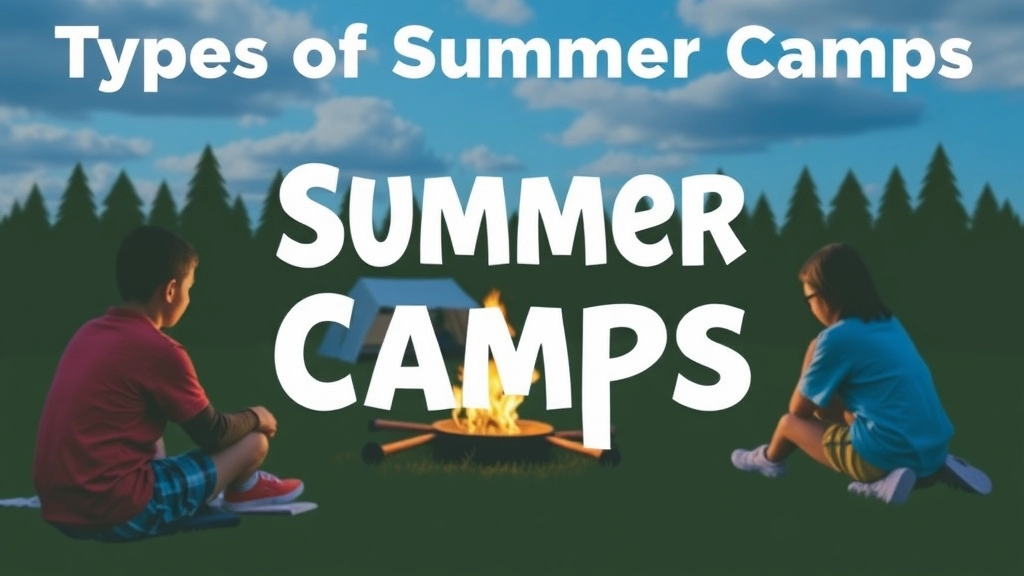
Ever wondered what kind of summer camp is right for your kid?
Or maybe you’re reminiscing about your own camp days and curious about what’s out there now.
Let’s dive in.
Traditional Camps
Think of these as the classic summer camps.
They’re usually in the woods, by a lake, and packed with activities like:
- Canoeing
- Archery
- Campfires
These camps are all about getting kids to unplug and enjoy nature.
Speciality Camps
Got a kid obsessed with something specific?
There’s a camp for that.
From sports to arts, these camps focus on one main thing:
- Football camps
- Dance camps
- Coding camps
You name it, there’s probably a camp for it.
Academic Camps
Learning doesn’t have to stop in the summer.
Academic camps make education fun:
- Science camps
- Math camps
- Language camps
It’s like school, but with a twist.
Adventure Camps
For the thrill-seekers.
Adventure camps are all about pushing limits:
- Rock climbing
- White-water rafting
- Survival skills
Perfect for kids who love a challenge.
Day Camps
Not ready for overnight stays?
Day camps are a great option.
Kids go home at night but still get a full day of activities:
- Arts and crafts
- Sports
- Field trips
Special Needs Camps
Everyone deserves a camp experience.
Special needs camps are tailored for kids with specific requirements:
- Autism camps
- Physical disability camps
- Medical condition camps
They offer specialised care and activities.
Faith-Based Camps
For families looking to blend faith and fun.
Faith-based camps combine traditional camp activities with religious teachings:
- Bible study
- Worship sessions
- Community service
Family Camps
Why should kids have all the fun?
Family camps let everyone join in:
- Family activities
- Parent-child bonding
- Group games
Sports Camps
Got a future athlete?
Sports camps focus on improving skills and techniques:
- Football
- Basketball
- Swimming
Tech Camps
In the digital age, tech camps are booming.
Kids can dive into:
- Robotics
- Game design
- Programming
Performing Arts Camps
For the little stars.
Performing arts camps cover:
- Acting
- Singing
- Dancing
So, what’s the best fit for your kid?
It depends on their interests and your goals.
There’s a camp out there for everyone.
And trust me, the right camp can make a massive impact.
Key Traditions and Activities
Ever wondered what makes summer camps so memorable? It’s the traditions and activities that keep kids coming back year after year. Let’s dive into the heart of summer camps and see what makes them tick.
Campfire Stories and Songs
Campfires are the beating heart of any summer camp. Picture this: a crackling fire, marshmallows roasting, and everyone gathered around sharing ghost stories or singing classic camp songs. It’s where friendships are forged and memories are made.
- Storytelling: Kids and counselors alike share spooky tales or funny anecdotes. It’s a great way to build public speaking skills and confidence.
- Songs: From “Kumbaya” to “The Campfire Song Song,” these tunes are catchy and easy to remember. Singing together fosters a sense of community and belonging.
Capture the Flag and Outdoor Games
Capture the Flag is a staple. It’s more than just a game; it’s a rite of passage. The thrill of strategizing, the rush of adrenaline when you’re running with the flagâit’s pure magic.
- Team-building: These games teach kids about teamwork, strategy, and fair play.
- Physical Activity: Running, jumping, and dodging are great for keeping kids active and healthy.
Arts and Crafts
Arts and Crafts are where creativity takes flight. From friendship bracelets to tie-dye shirts, these activities let kids express themselves in unique ways.
- Skill Development: Kids learn fine motor skills, patience, and the joy of creating something with their own hands.
- Keepsakes: These crafts often become cherished mementos of their time at camp.
Nature Hikes and Survival Skills
Nature Hikes offer a chance to explore the great outdoors. Kids learn about local flora and fauna, and sometimes even basic survival skills.
- Environmental Awareness: Understanding nature fosters a sense of responsibility towards the environment.
- Confidence Building: Learning to navigate and survive in the wild boosts self-reliance and confidence.
Talent Shows and Skits
Talent Shows and Skits are where kids get to shine. Whether it’s a magic trick, a dance routine, or a comedy sketch, these performances are a highlight of the camp experience.
- Self-expression: Kids get to showcase their talents and receive positive feedback.
- Public Speaking: Performing in front of an audience helps develop public speaking skills and confidence.
Water Activities
Water Activities like swimming, canoeing, and kayaking are a huge hit. They’re not just fun; they’re also great for building physical strength and coordination.
- Safety Skills: Kids learn important water safety and swimming skills.
- Adventure: Activities like canoeing and kayaking offer a sense of adventure and exploration.
Closing Ceremonies
Closing Ceremonies mark the end of the camp session. It’s a time for reflection, awards, and often a final campfire.
Cultural Impact on Youth Development
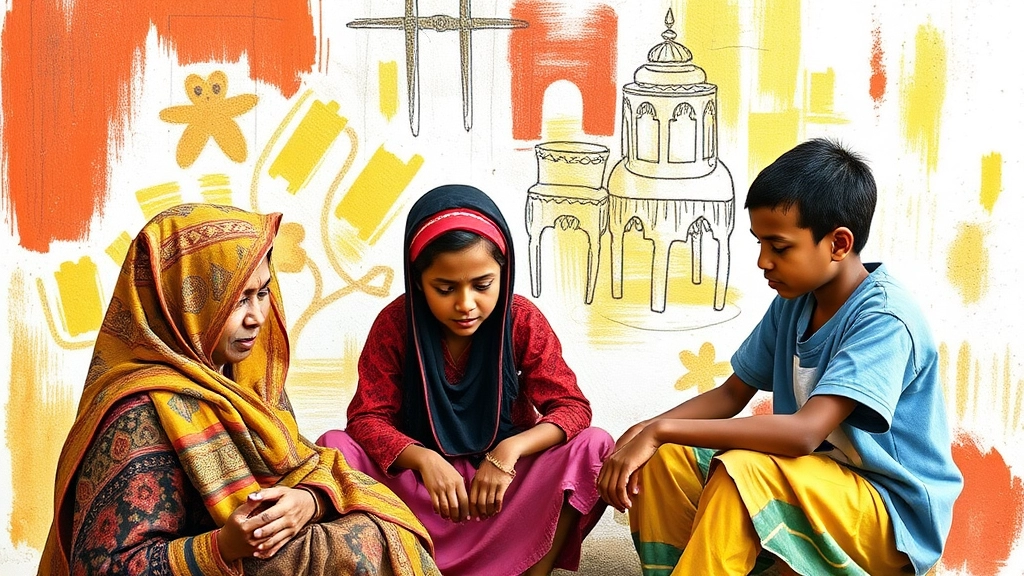
Ever wondered how summer camps shape young minds?
Let’s dive into it.
Summer camps aren’t just about roasting marshmallows and singing around the campfire.
They play a massive role in youth development.
Here’s how.
Building Independence
Kids get a taste of freedom.
Away from parents.
Making their own decisions.
They learn to trust themselves.
Boosting Social Skills
Meeting new people.
Making friends.
Handling conflicts.
Camps are social skill boot camps.
Learning Teamwork
Sports.
Group activities.
Camp projects.
Kids learn the importance of working together.
Developing Resilience
Challenges.
Failures.
Successes.
Camps teach kids to bounce back.
Instilling Values
Respect.
Responsibility.
Empathy.
Camps often have core values they pass on to campers.
Real Stories, Real Impact
Take Sarah, for example.
She was shy.
Barely spoke up in class.
After a summer at camp, she came back confident.
Leading group projects.
Making new friends.
Why Does This Matter?
Because these skills stick with them.
Into adulthood.
Impacting their careers.
Their relationships.
Their entire lives.
Quick Recap
- Independence
- Social Skills
- Teamwork
- Resilience
- Values
Think About It
How can a summer camp experience change your child’s life?
Send them.
Watch them grow.
Summer camps are a game-changer for youth development.
Regional Differences in Summer Camp Culture
Ever wondered why summer camps in one region feel so different from those in another? Let’s dive into the fascinating regional differences in summer camp culture. Whether you’re a parent deciding where to send your child or just curious about how camps vary, this one’s for you.
Why Do Regional Differences Matter?
First off, why should you care about regional differences in summer camp culture? Well, these differences can shape your child’s experience in ways you might not even realise. From the types of activities offered to the overall vibe of the camp, location plays a huge role.
The North vs. The South
Summer Camps in the North:
- Nature-Focused Activities: Think hiking, canoeing, and campfires. Northern camps often take advantage of the cooler climate and lush forests.
- Traditional Vibes: Many northern camps have a long history, sometimes dating back over a century. They stick to tried-and-true traditions.
- Shorter Seasons: Due to the colder climate, these camps usually operate in a shorter window, often from late June to early August.
Summer Camps in the South:
- Water-Based Fun: With hotter temperatures, southern camps focus more on water activities like swimming, kayaking, and even water skiing.
- Modern Twists: Southern camps are often newer and might offer more modern amenities and activities.
- Longer Seasons: The warm climate allows these camps to run from early June to late August, sometimes even into September.
East Coast vs. West Coast
East Coast Camps:
- History and Heritage: Many East Coast camps have a rich history and are steeped in tradition. They often focus on character-building activities.
- Academic Enrichment: Camps here might offer academic programs alongside traditional camp activities. Think STEM camps or language immersion.
- Diverse Activities: From arts and crafts to sailing and horseback riding, East Coast camps offer a wide range of activities.
West Coast Camps:
- Adventure and Exploration: The West Coast is all about adventure. Camps often include activities like rock climbing, surfing, and mountain biking.
- Eco-Friendly: With a strong focus on the environment, many West Coast camps incorporate sustainability and eco-friendly practices.
- Creative Arts: The arts scene is big here. Expect camps to offer everything from music and dance to filmmaking and theatre.
Midwest vs. Southwest
Midwest Camps:
- Community-Centered: Midwest camps often have a strong sense of community. They focus on teamwork and building lifelong friendships.
- Agricultural Influence: Given the region’s farming heritage, some camps might include activities like gardening or animal care.
- Weather Variability: The Midwest’s unpredictable weather means camps need to be versatile, offering both indoor and outdoor activities.
Southwest Camps:
- Desert Adventures: Camps in the Southwest take advantage of the unique landscape with activities like desert hiking and stargazing.
- Cultural Influence: The rich cultural heritage of the Southwest is often reflected in camp activities, from Native American crafts to Mexican cuisine.
- Heat Management: With scorching summer temperatures, these camps are experts in keeping kids cool, often with plenty of water-based activities.
How to Choose the Right Region
So, how do you pick the right region for your child’s summer camp experience?
- Consider Climate: Does your child prefer cooler or warmer weather? This can significantly impact their enjoyment.
- Activity Preferences: What activities does your child enjoy? Match these with what the region excels in.
- Cultural Fit: Think about whether your child would thrive in a traditional setting or prefer a more modern, adventurous camp.
The Role of Counselors and Leadership in Camps
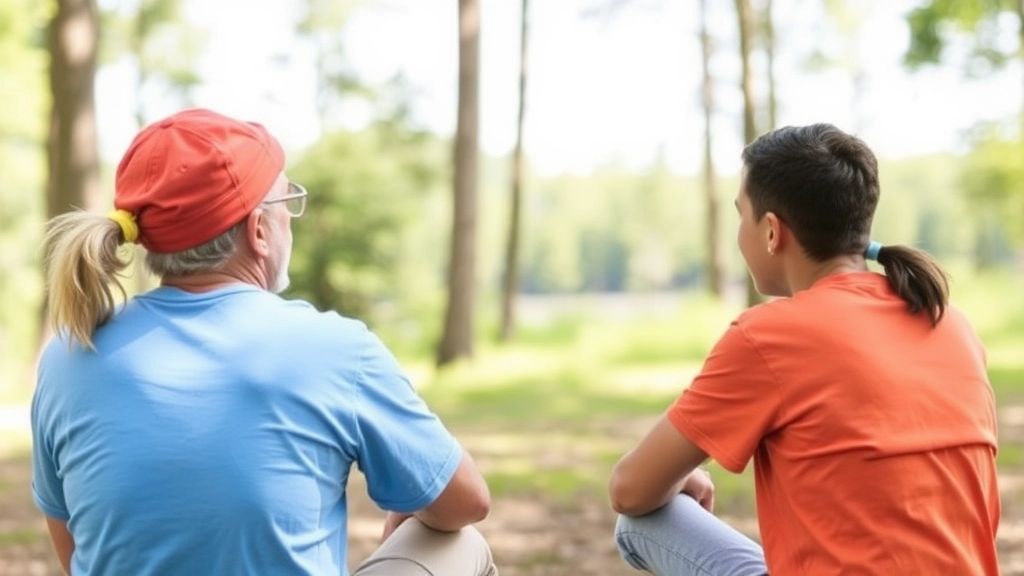
Ever wondered what makes summer camps so memorable?
Why do kids come back year after year, excited and eager?
It’s not just the activities or the location.
It’s the people.
Counselors and leadership play a massive role in shaping the camp experience.
Why Counselors Matter
Think back to your own camp days.
Remember that one counselor who made everything fun?
The one who seemed to know just how to cheer you up?
Counselors are the backbone of any summer camp.
They set the tone.
They create the vibe.
They make or break the experience.
So, what makes a great counselor?
Here’s a quick list:
- Empathy: They get what kids are feeling.
- Energy: Always ready to jump into action.
- Patience: Handling homesickness or tantrums without breaking a sweat.
- Leadership: Guiding activities and resolving conflicts like a pro.
Leadership in Camps
Now, let’s talk about leadership.
Who’s steering the ship?
Camp directors and senior staff.
These folks are the unsung heroes.
They plan, organise, and ensure everything runs smoothly.
A good camp leader:
- Communicates well: Keeps everyone in the loop.
- Problem-solves: Quick to fix issues before they become big problems.
- Inspires: Motivates counselors and campers alike to bring their best selves.
Real Stories: Leadership in Action
Let me tell you about Sarah.
She was a camp director I worked with.
One summer, we had a storm that knocked out power for days.
Sarah kept everyone calm.
She organised games and activities that didn’t need electricity.
Kids thought it was the best part of camp.
That’s leadership.
The Ripple Effect
When counselors and leaders do their job well, the impact is huge.
Kids learn:
- Confidence: Trying new things without fear.
- Teamwork: Working together on projects and games.
- Resilience: Bouncing back from setbacks.
These skills stick with them long after camp ends.
The Bottom Line
Counselors and leadership are the heart and soul of summer camps.
They create an environment where kids can grow, learn, and have the time of their lives.
So, next time you think about what makes a summer camp great, remember it’s the people who make all the difference.
Got any camp stories or experiences to share?
Drop them in the comments below!
Counselors and leadership make summer camps unforgettable.
Want to dive deeper into the impact of summer camps on youth development?
Check out our section on Cultural Impact on Youth Development.
Keep it real, keep it engaging, and let’s make every summer count.
Modern Adaptations in Summer Camps
Ever wondered how summer camps have evolved to keep up with the times? Let’s dive into the modern adaptations in summer camps and see how they’re staying relevant and exciting for today’s youth.
Why Do Summer Camps Need to Adapt?
Parents and kids today have different expectations compared to a decade ago. With technology advancing at a rapid pace and new interests emerging, summer camps need to adapt to stay appealing. Here are some common questions and concerns:
- Are summer camps still fun in the digital age?
- How do camps ensure kids are learning valuable skills?
- What measures are taken for safety and inclusivity?
Embracing Technology
Gone are the days when summer camps were just about tents and campfires. Modern camps are integrating technology in meaningful ways:
- STEM Camps: Camps now offer programs focused on Science, Technology, Engineering, and Math (STEM), where kids can learn coding, robotics, and more.
- Virtual Camps: For those who can’t attend in person, virtual camps provide an engaging alternative with online activities and social interactions.
- Smart Gear: Many camps use apps for communication and updates, ensuring parents stay informed about their child’s activities and well-being.
Focus on Inclusivity and Diversity
Modern summer camps are making strides to be more inclusive and diverse:
- Special Needs Programs: Camps now offer tailored programs for children with special needs, ensuring everyone can enjoy the camp experience.
- Cultural Camps: These camps celebrate different cultures, teaching kids about global traditions and fostering a sense of inclusivity.
Health and Safety Upgrades
Safety has always been a priority, but modern camps are taking it up a notch:
- Health Protocols: Enhanced health and safety protocols, especially post-pandemic, to ensure a safe environment.
- Mental Health Support: Many camps now have counselors trained in mental health to support kids in need.
Sustainable Practices
Eco-consciousness is a big deal, and camps are catching on:
- Green Initiatives: Camps are implementing eco-friendly practices like recycling, composting, and using solar energy.
- Nature Programs: Programs focused on environmental education, teaching kids the importance of sustainability.
Real Stories, Real Impact
I remember chatting with a parent who was initially sceptical about sending her tech-savvy kid to a traditional camp. She chose a STEM camp, and her child came back not only with new coding skills but also with a newfound love for nature, thanks to the camp’s balanced approach.
Another friend shared how a special needs camp transformed her son’s summer. The tailored activities and supportive environment made a world of difference, showcasing the power of modern adaptations in summer camps.
The Bottom Line
Modern adaptations in summer camps are not just about keeping up with trends; they’re about enhancing the camp experience to meet the needs of today’s youth. Whether it’s through technology, inclusivity, safety, or sustainability, these changes ensure that summer camps remain a vital part of youth development.
Parental Perspectives on Summer Camp Culture
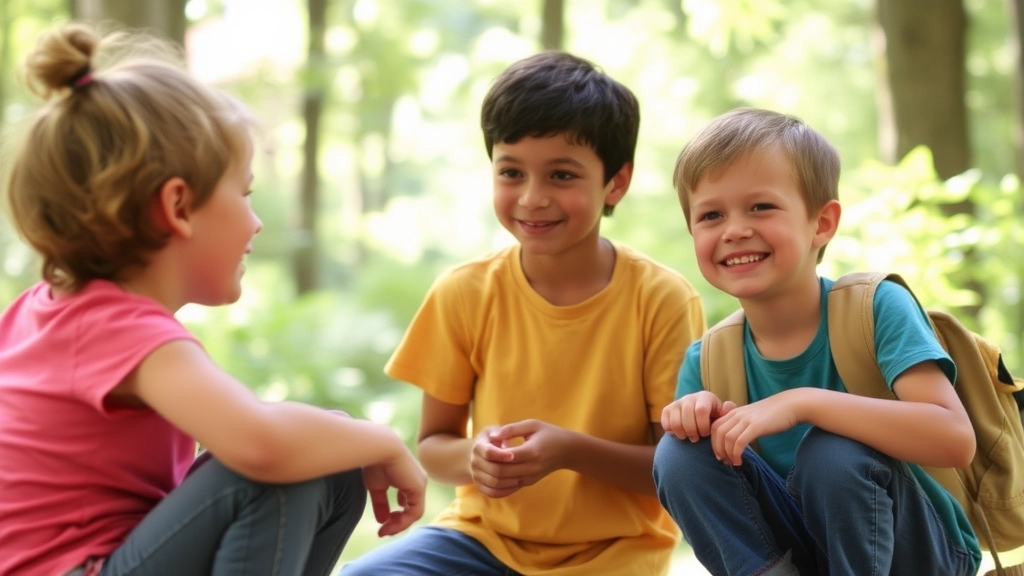
Ever wondered if sending your kid to summer camp is worth it?
Let’s dive into what parents really think about summer camp culture.
The Big Questions Parents Have
First off, parents are always asking:
- Will my child be safe?
- Is it worth the money?
- Will they actually have fun and learn something?
These are legit concerns.
No one wants to spend a fortune only for their kid to come back miserable.
Safety First
Safety is a big deal.
Parents need to know their kids are in good hands.
Summer camps have stepped up their game with:
- Trained counsellors
- Strict safety protocols
- Emergency plans
Knowing this can ease a lot of parental anxiety.
The Value Proposition
Is summer camp worth the cost?
Many parents think so.
Here’s why:
- Skill development: Kids learn new skills they can’t get at home.
- Independence: They become more self-reliant.
- Social skills: Making new friends is a big plus.
Fun and Learning
Summer camps are no longer just about campfires and marshmallows.
They offer a range of activities:
- STEM programmes: For the science and tech enthusiasts.
- Sports camps: Perfect for the budding athlete.
- Arts and crafts: Get those creative juices flowing.
Kids come back with new interests and talents.
Real Stories from Real Parents
Sarah, a mum of two, says her kids came back from camp more confident and independent.
John, another parent, noticed his son developed a love for coding after attending a tech camp.
These stories are common.
Parental Peace of Mind
Parents also love that camps give them a break.
Let’s be real, parenting is hard work.
A few weeks of peace can be a lifesaver.
The Community Angle
Camps also build a sense of community.
Parents appreciate that their kids are making lifelong friends.
This sense of belonging is invaluable.
Summer Camps and Community Building
Ever wondered if summer camps are just about roasting marshmallows and singing campfire songs? Let’s dive deeper. Summer camps are more than just a break from schoolâthey’re a powerful tool for community building.
What Does Community Building at Summer Camps Even Mean?
When we talk about community building, we’re talking about creating a sense of belonging and togetherness. At summer camps, kids from various backgrounds come together, sharing experiences and learning to live and work as a team. This isn’t just feel-good fluff; it’s real, impactful stuff.
How Do Summer Camps Foster Community?
Here’s how summer camps pull it off:
- Shared Experiences: From conquering high ropes courses to team sports, shared experiences create bonds that last a lifetime.
- Team Activities: Whether it’s a group hike or a cabin clean-up competition, team activities teach kids the value of cooperation and collective effort.
- Traditions and Rituals: Camps often have unique traditionsâlike end-of-camp ceremonies or talent showsâthat foster a sense of unity and belonging.
Real Stories: The Impact on Kids
Let me share a story. I once met a kid named Jake who was shy and struggled to make friends at school. After a summer at camp, he came back with newfound confidence and a circle of friends he wouldn’t trade for the world. That’s the magic of community building at summer camps.
The Role of Counselors in Building Community
Counselors aren’t just there to supervise; they’re the glue that holds the camp community together. They lead by example, showing kids how to respect each other and work as a team. They’re mentors, friends, and sometimes even heroes to these kids.
Why Community Building Matters
So why does all this matter? Simpleâit helps kids develop social skills, empathy, and a sense of responsibility. These are the building blocks of a strong, cohesive society. Plus, in a world where digital interactions often replace face-to-face ones, the real-world connections made at camp are invaluable.
Takeaways for Parents
As a parent, you might wonder if sending your child to camp is worth it. Here’s the deal:
- Social Skills: Your child will learn to communicate and collaborate with others.
- Independence: They’ll gain confidence and self-reliance.
- Lifelong Friendships: The bonds formed at camp often last a lifetime.
For more insights on finding the perfect camp for your child, check out our guide on MSK Summer Camps. Additionally, if you’re curious about specific activities and tips, our Top Tennis Summer Camps article offers valuable information.
Future Trends in Summer Camp Culture
Ever wondered what the future holds for summer camps?
You’re not alone.
Parents and camp organisers are constantly thinking about how to keep up with the times.
So, what’s next for summer camp culture?
Embracing Technology
Let’s face it, tech is everywhere.
But how do camps use it without losing that classic feel?
- Virtual Reality (VR): Imagine exploring the Amazon or the ocean depths right from camp.
- Apps for Parents: Real-time updates and photos keep parents in the loop.
Focus on Mental Health
Kids today face pressures we never imagined.
Camps are stepping up.
- Mindfulness Sessions: Teaching kids to chill out and focus.
- Counselling Services: Support when they need it.
Eco-Friendly Initiatives
With climate change on everyone’s mind, camps are going green.
- Sustainable Practices: Solar panels and recycling are just the start.
- Nature Education: Kids learn to love and protect the planet.
Diversity and Inclusion
Camps are becoming more inclusive.
And that’s not just a buzzword.
- Cultural Exchange Programmes: Kids from different backgrounds share experiences.
- Accessibility Improvements: Making sure everyone can join in.
Customised Experiences
One size doesn’t fit all anymore.
- Specialised Camps: From coding to cooking, there’s something for every interest.
- Flexible Schedules: Options for day camps or overnight stays.
Summer camps are evolving.
And it’s exciting.
As we look to the future, these trends are shaping a new era of adventure and learning. For those interested in specific activities, check out our Top STEM Summer Camps for 2024. And if you’re looking for a comprehensive list, our Ultimate Summer Camp Calendar Guide has got you covered.
FAQs on Summer Camp Culture
What types of summer camps are available?
Summer camps come in various forms, including Traditional Camps, Speciality Camps, Academic Camps, Adventure Camps, Day Camps, Special Needs Camps, Faith-Based Camps, Family Camps, Sports Camps, Tech Camps, and Performing Arts Camps.
How do summer camps impact youth development?
Summer camps significantly contribute to youth development by building independence, boosting social skills, teaching teamwork, developing resilience, and instilling values.
What role do counselors and leadership play in camps?
Counselors and leadership are crucial in shaping the camp experience. They provide empathy, energy, patience, and leadership, ensuring a memorable and impactful camp environment.
Are summer camps safe for children?
Yes, safety is a priority. Camps implement measures like trained counselors, strict safety protocols, and emergency plans to ensure the well-being of campers.
Is sending my child to summer camp worth the cost?
Many parents find it worthwhile due to the benefits like skill development, increased independence, and enhanced social skills that children gain from the experience.
What activities can children participate in at summer camps?
Camps offer a variety of activities, including STEM programs, sports, arts and crafts, and more, allowing children to explore new interests and talents.
How do summer camps help in building community and friendships?
Camps foster a sense of community and help children make lifelong friends, providing a valuable sense of belonging.
Can summer camps help children become more independent?
Absolutely. Camps provide a setting where children can make their own decisions, encouraging them to become more self-reliant.
Do parents find summer camps beneficial?
Yes, many parents appreciate the positive changes in their children, such as increased confidence and new interests, after attending camp.

